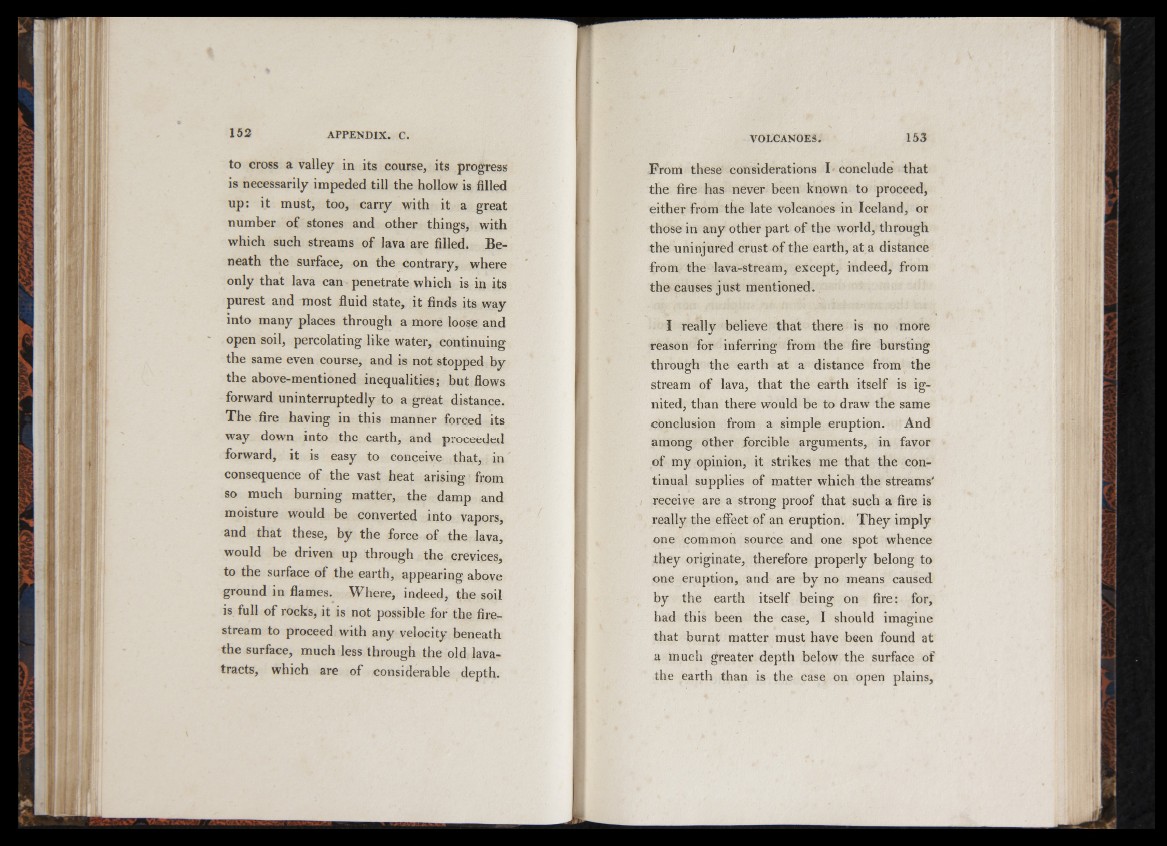
to cross a valley in its course, its progress
is necessarily impeded till the hollow is filled
up: it must, too, carry with it a great
number of stones and other things, with
which such streams of lava are filled. Beneath
the surface, on the contrary, where
only that lava can penetrate which is in its
purest and most fluid state, it finds its way
into many places through a more loose and
open soil, percolating like water, continuing
the same even course, and is not stopped by
the above-mentioned inequalities; but flows
forward uninterruptedly to a great distance.
The fire having in this manner forced its
way down into the earth, and proceeded
forward, it is easy to conceive that, in
consequence of the vast heat arising from
so much burning matter, the damp and
moisture would be converted into vapors,
and that these, by the force of the lava,
would be driven up through the crevices,
to the surface of the earth, appearing above
ground in flames. Where, indeed, the soil
is full of rocks, it is not possible for the fire-
stream to proceed with any velocity beneath
the surface, much less through the old lava-
tracts, which are of considerable depth.
From these considerations I conclude that
the fire has never been known to proceed,
either from the late volcanoes in Iceland, or
those in any other part of the world, through
the uninjured crust of the earth, at a distance
from the lava-stream, except, indeed, from
the causes just mentioned.
I really believe that there is no more
reason for inferring from the fire bursting
through the earth at a distance from the
stream of lava, that the earth itself is ignited,
than there would be to draw the same
conclusion from a simple eruption. And
among other forcible arguments, in favor
of my opinion, it strikes me that the continual
supplies of matter which the streams'
i receive are a strong proof that such a fire is
really the effect of an eruption. They imply
one common source and one spot whence
they originate, therefore properly belong to
one eruption, and are by no means caused
by the earth itself being on fire: for,
had this been the case, I should imagine
that burnt matter must have been found at
a much greater depth below the surface of
the earth than is the case on open plains,